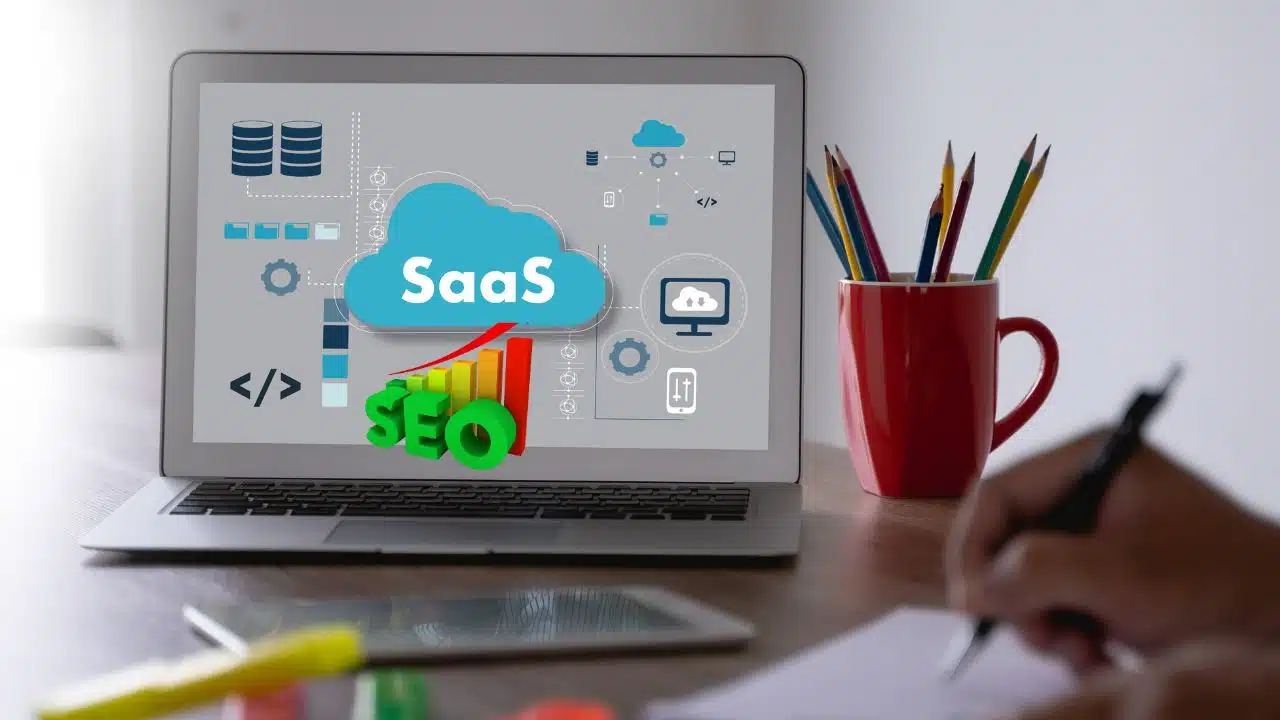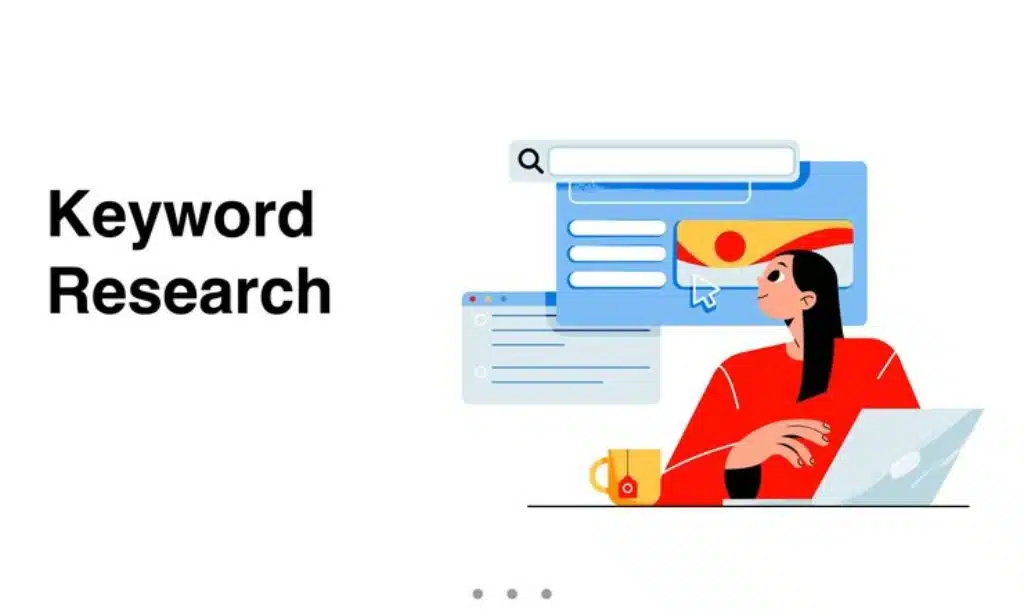In the competitive world of SaaS (Software as a Service), driving consistent organic traffic to your website is critical for success.
Organic traffic not only reduces dependency on paid ads but also brings in high-quality leads that are genuinely interested in your product or service. However, achieving this requires a robust SEO strategy tailored to the unique challenges of SaaS businesses.
This guide outlines 11 proven SaaS SEO strategies that will help you optimize your website, improve search engine rankings, and significantly boost organic traffic.
Whether you’re targeting startups, enterprises, or individual users, these actionable strategies will set your SaaS business up for sustainable growth.
1. Conduct Comprehensive Keyword Research for SaaS
Why It’s Important
Keyword research is the foundation of any successful SEO strategy. For SaaS businesses, identifying the right keywords means understanding what your target audience is searching for at every stage of the buyer’s journey.
How to Do It
- Focus on Long-Tail Keywords: Target specific, low-competition keywords that address pain points or queries, such as “best CRM software for small businesses.”
- Analyze Competitor Keywords: Use tools like Ahrefs or SEMrush to identify the keywords your competitors rank for and target gaps they’ve missed.
- Group Keywords by Intent: Separate keywords into categories like informational (blog posts), navigational (feature pages), and transactional (pricing or demo pages).
Pro Tip
Leverage tools like Google Keyword Planner, Ubersuggest, and AnswerThePublic to uncover niche keywords relevant to your SaaS product.
2. Optimize Your SaaS Website for Search Engines
Why It’s Important
Your website is the first impression for potential customers and the primary hub for organic traffic. Ensuring it is optimized for SEO is critical.
Actionable Tips
- Speed Optimization: Use tools like Google PageSpeed Insights to improve loading times. SaaS users expect fast, responsive websites.
- Mobile-Friendly Design: Ensure your website is fully responsive on all devices, as a significant portion of traffic comes from mobile users.
- Clean URL Structure: Use simple, keyword-rich URLs, such as yourdomain.com/crm-software.
- Internal Linking: Link to relevant pages within your site to improve navigation and help search engines understand your content hierarchy.
3. Create High-Quality, User-Centric Content
Why It’s Important
Content marketing and SEO go hand in hand. By producing valuable content, you can attract, engage, and convert your target audience.
Actionable Tips
- Publish In-Depth Guides: Create comprehensive resources that solve specific problems for your audience. For example, “A Complete Guide to Choosing Project Management Software.”
- Focus on SaaS Use Cases: Write case studies, success stories, or how-to articles showcasing how customers benefit from your software.
- Regular Blog Updates: Consistently update your blog with fresh, relevant content that targets new keywords and trends.
Pro Tip
Use the skyscraper technique—identify top-performing content in your niche and create something even more detailed and valuable.
4. Leverage Technical SEO for SaaS
Why It’s Important
Technical SEO ensures search engines can crawl, index, and rank your site effectively. For SaaS companies, technical issues can lead to lost traffic and visibility.
Key Focus Areas
- Schema Markup: Add structured data to help search engines understand your SaaS features, pricing, and customer reviews.
- Canonical Tags: Prevent duplicate content issues by specifying the preferred URL for similar pages.
- Sitemap and Robots.txt: Submit an updated XML sitemap to Google Search Console and ensure your robots.txt file doesn’t block important pages.
- Fix Broken Links: Use tools like Screaming Frog to identify and fix broken internal or external links.
5. Build Backlinks Strategically
Why It’s Important
Backlinks are a major ranking factor for search engines. High-quality backlinks from authoritative sites signal trust and credibility.
Actionable Tips
- Guest Blogging: Write guest posts for industry blogs to earn links back to your site.
- Collaborate with Influencers: Partner with SaaS influencers to share your content and attract backlinks.
- Broken Link Building: Find broken links on relevant websites and offer your content as a replacement.
Pro Tip
Focus on earning backlinks from SaaS-specific directories, tech blogs, and industry-specific publications.
6. Optimize Feature and Pricing Pages for Conversion
Why It’s Important
Your feature and pricing pages are often the first point of contact for potential customers. Optimizing them for SEO ensures they rank well and convert visitors.
How to Optimize
- Keyword Placement: Include target keywords naturally in titles, headings, and meta descriptions.
- Clear CTAs: Use prominent call-to-action buttons like “Start Free Trial” or “Request a Demo.”
- Add Testimonials: Showcase customer reviews or case studies to build trust.
- Use Comparison Tables: Highlight how your product stacks up against competitors.
7. Target SaaS-Specific Local SEO
Why It’s Important
Even if your SaaS product serves a global audience, targeting local SEO can help you build brand awareness in specific markets.
Actionable Tips
- Google My Business: Optimize your GMB profile with accurate information, reviews, and photos.
- Location-Based Keywords: Use keywords like “CRM software in New York” to target local searches.
- Local Partnerships: Collaborate with local tech hubs or co-working spaces to boost visibility.
8. Focus on SaaS Video Content for SEO
Why It’s Important
Video content is highly engaging and ranks well in search results, making it an effective tool for driving traffic.
Actionable Tips
- Tutorials and Demos: Create video guides explaining your SaaS features and use cases.
- YouTube SEO: Optimize video titles, descriptions, and tags with relevant keywords.
- Embed Videos: Add videos to your blog posts or landing pages for better engagement.
Pro Tip
Host webinars or live Q&A sessions to attract more traffic and generate leads.
9. Use SaaS Comparison Keywords
Why It’s Important
Many potential customers search for comparisons between SaaS products to make informed decisions. Targeting these keywords can capture high-intent traffic.
Actionable Tips
- Create Comparison Pages: For example, “Your Product vs. Competitor.”
- Highlight Unique Features: Emphasize what sets your software apart.
- Include User Reviews: Add customer testimonials to reinforce credibility.
10. Monitor and Analyze SEO Performance
Why It’s Important
Tracking your SEO performance helps you identify what’s working and where you need to improve.
Tools to Use
- Google Analytics: Monitor organic traffic, bounce rates, and conversions.
- Ahrefs/SEMrush: Track keyword rankings and backlinks.
- Google Search Console: Identify indexing issues and optimize click-through rates (CTR).
11. Invest in SaaS-Focused SEO Automation
Why It’s Important
SEO is a long-term process, and automation can streamline tasks like keyword tracking, competitor analysis, and reporting.
Tools to Consider
- Surfer SEO: For content optimization and keyword analysis.
- Yoast SEO: For on-page SEO improvements.
- BrightEdge: For enterprise-level SEO automation.
Takeaways
SEO for SaaS businesses requires a unique approach that balances technical expertise, high-quality content, and targeted keyword strategies.
By implementing these 11 SaaS SEO strategies, you can improve your website’s visibility, attract high-quality organic traffic, and drive sustainable growth.
Start by conducting thorough keyword research, creating valuable content, and leveraging backlinks, while continuously monitoring your performance. With dedication and the right tools, your SaaS business can achieve lasting success in the competitive digital landscape.
Ready to boost your organic traffic? Start implementing these strategies today and watch your SaaS business thrive!







































